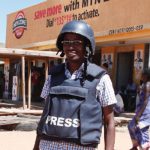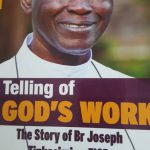Internet shutdowns have become a new norm of controlling views during the election period in many African countries. Recently, the Tanzanian government shut down SMS and Internet Service Providers ahead of the general election held on the 28th of September 2020 that saw President John Magufuli retain the presidency.
The 2016 general election was highlighted for the social media blackout that happened on the February 18, 2016, on the eve of the presidential election. Uganda has experienced four major internet shutdowns between 2006 to 2016 and all are election related. This brought to the increased download of Virtual Private Networks apps that Ugandans used to beat the social media blackout and to keep information going on during the election.
With the introduction of stringent cyber laws and a social media tax it is evident that the cyber spaces in Uganda are increasingly being curtailed and dissent discouraged. It is evident for Ugandans, that the use of social media continues to change as we dive deeper into the election cycle. With less than sixty days to the January 14th General Elections, it is imperative for the different stakeholders in the election to safeguard the channels that are available to ease on communication: more so now, while we are in a hybrid campaign season that requires utilizing virtual spaces.
Evidently so, autocracies continue to curtail digital rights, censor media houses and send others into self-imposed censorship. It is important for all stakeholders in the elections to find a way to champion a movement that can provide alternatives to the electorate in having their voices heard before, during and post elections
Internet shutdowns continue to rise in the East Africa region yet there is a lot of legislation and policy for cyber spaces and digital platforms adopted. The shrinking space for civic engagement and online activism in an overtly digitalised world continues to undermine freedoms of speech and association. With all the available legal provisions to regulate the digital space, shutdowns should be less opted for in the electoral cycle as a mechanism to curtail false news and information.
For a more transparent, free and fair election, communication during the elections is paramount in reducing mistrust in the electorate in the legitimacy of the process therefore it is the mandate of the electorate, non-government organisations, the state and other stakeholders to be in the forefront of ensuring that the cyber spaces and the digital rights of the citizens are not violated in any form.
In addition, it is imperative on the electorate to use the cyber space and operate within the rights established for them and ensure that their actions in media and digital spaces do not affect other parties. In curbing fake news and inciting violence, the electorate are mandated to care before they share. Verify and check facts in the heat and desire to break the news first.
In retracting Internet shutdowns, the electorate can devise to use Virtual Private Networks that can help them access the internet and continue to receive and share information on the dynamics in the electoral cycle, this will keep them ready for the eventualities that might come from censorship of the different ISPs and other communication channels.
Non-state organisations that highlight the electoral processes of Uganda can champion an online digital rights violations tracker that will benefit the electorate, human rights activists and defenders to advocate for digital rights protection during and after the election process. Also, they can use the tracker to hold different people accountable in the courts of law for violating these digital rights.
In conclusion, therefore it is key for us as the electorate to continue to educate ourselves with the necessary knowledge on how we can harness the blessing of cyber space in our election cycle without violating each other’s rights. It is also central that we continue to advocate for ethical and mindful use of the digital spaces that can guarantee safety for all users of the digital spaces in our elections.
Tricia Gloria Nabaye
Resident Research Associate: GREAT LAKES INSTITUTE FOR STRATEGIC STUDIES
This post was created with our nice and easy submission form. Create your post!




